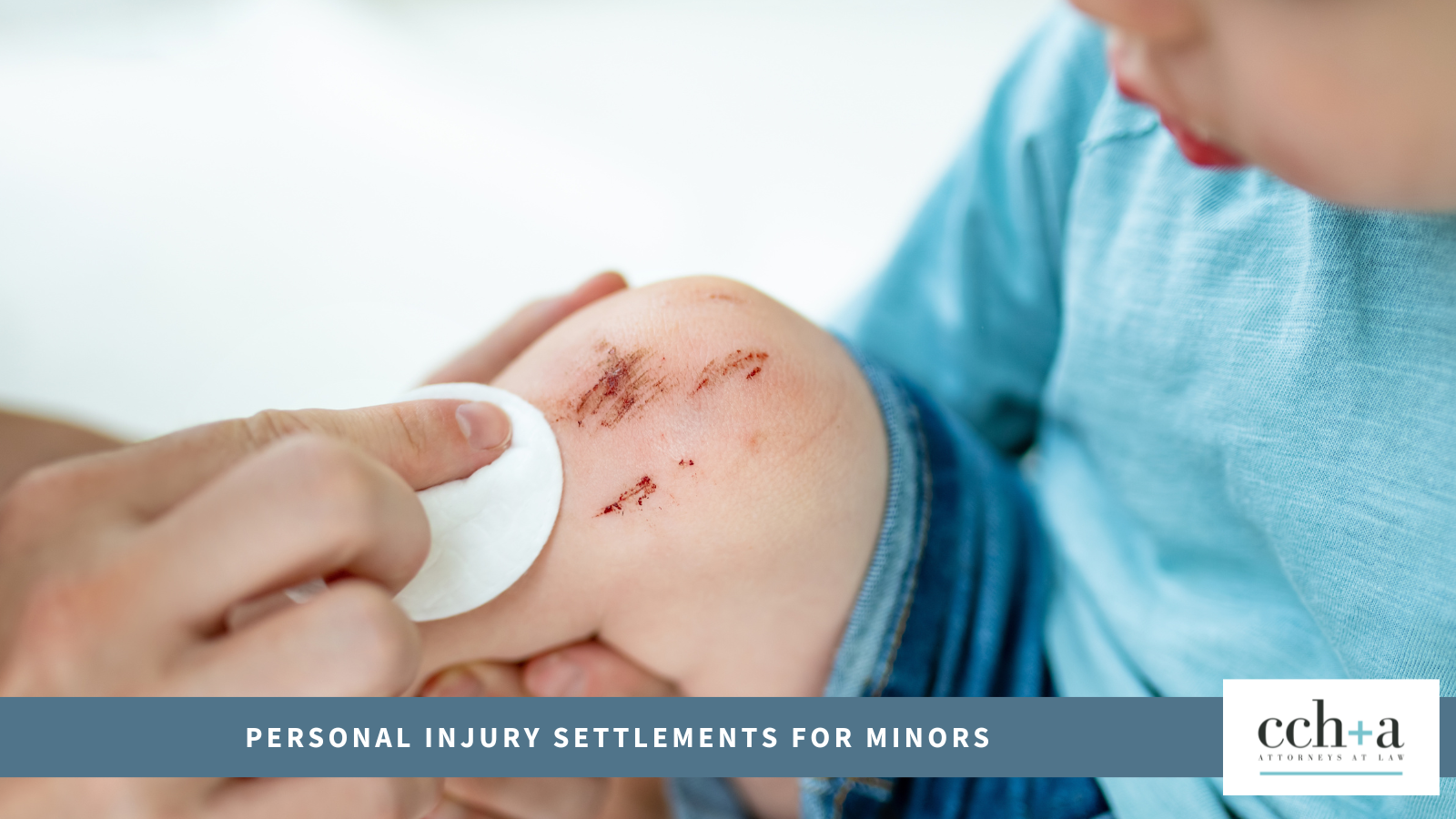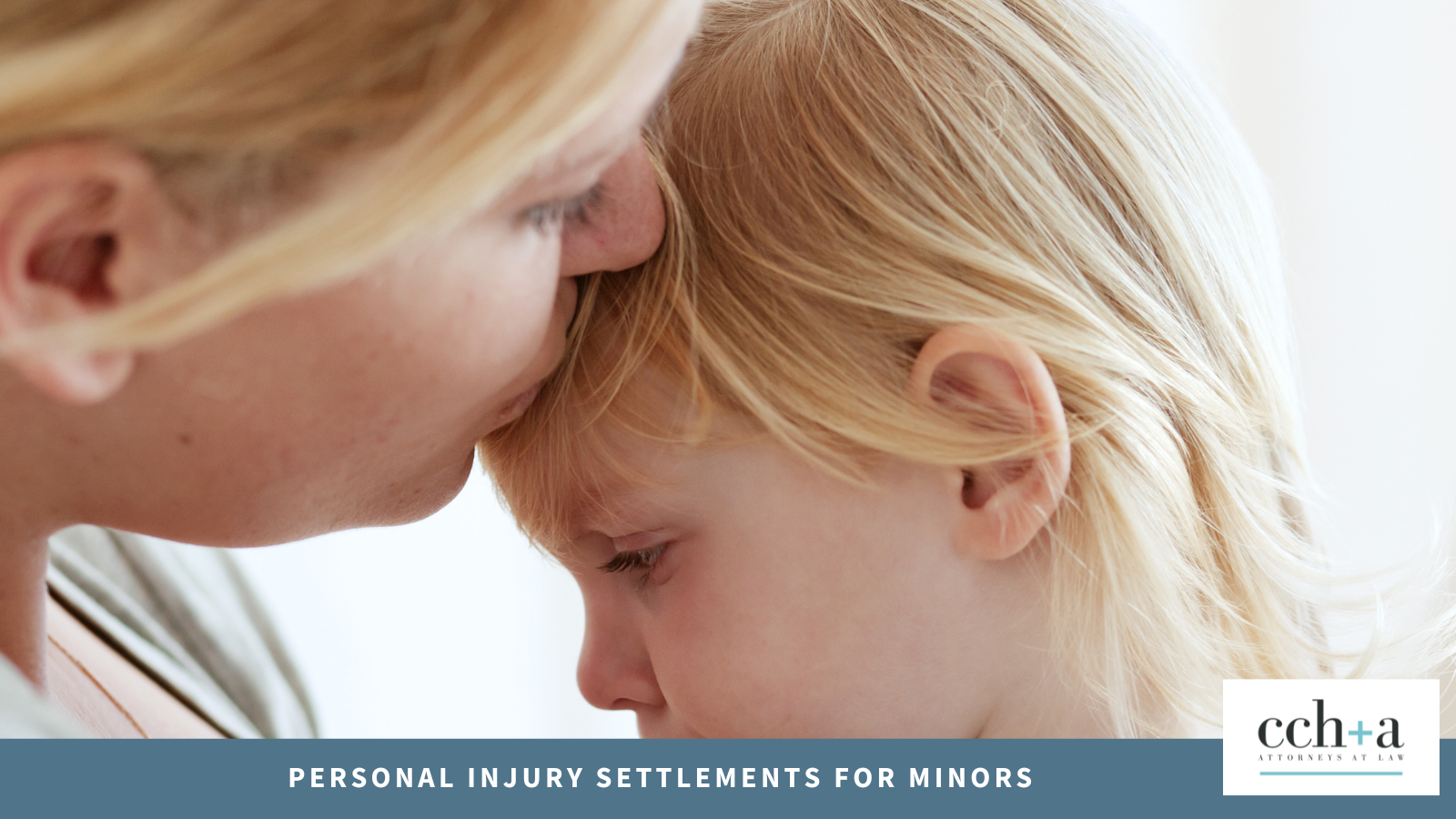What to Expect with Personal Injury Settlements for Minors

Author: Rachel N. Woloshin
POST DATE: 9.27.23

What to Expect with Personal Injury Settlements for Minors
Accidents can happen to anyone, but the situation can become more complicated when a minor child is involved. Regarding legal requirements and the claims process, personal injury settlements for minors differ from those involving adults. For example, getting court approval in a settlement involving a minor is necessary. If you are a parent or guardian, understanding these differences is crucial for ensuring that the minor receives a fair and adequate settlement. If your child suffered injuries in a personal injury accident, contact Church Church Hittle and Antrim to discuss how to proceed.
The Role of Parents and Guardians in the Settlement Process
Before diving into settlement negotiations, it’s important to understand that minors cannot legally enter agreements or sign contracts, including settlement agreements. Thus, parents or guardians must assume this responsibility on their behalf. Not only do you need to negotiate the settlement, but you must also seek court approval for any settlement reached. The court ensures that the agreement serves the minor’s best interests, adding an extra layer of protection.
The court will require guardianship for some settlements, usually $10,000 and over. A guardianship is a legal relationship that will oversee the settlement. The purpose is to ensure the parents only use the money for their child. Parents cannot commingle funds; they must have separate accounts.

Steps Involved in Settling a Personal Injury Claim for a Minor
If you have questions about personal injury settlements for minors, here’s a look at some of the steps involved in the claims process.
1. Actions to Take After an Accident
Immediately following the incident, medical attention is the top priority, whether it’s a car accident or any other type of injury. Consult with your care team and family doctor to gauge the extent of your child’s injuries. Preserve all medical records and billing, which will be essential to your case.
2. Consult with an Experienced Personal Injury Attorney
Given the complexities surrounding personal injury settlements for minors, it’s best to consult a lawyer immediately. Insurance companies may try to tell you that you don’t need an attorney. However, they do not necessarily have your best interests at heart. If an insurance adjuster encourages you to handle a car accident settlement for a child on your own, you don’t have to listen. Contact a personal injury attorney at CCHA Law to discuss your options.
3. Gather Evidence
Strong evidence is necessary whether an attorney represents you or you’re handling the claim independently. You need to prove the other party is at fault. You will also have to substantiate your damages. Otherwise, your child’s settlement might be lower, or it might not be successful at all. Examples of evidence include police reports, witness statements, and doctors’ notes.
4. Settlement Negotiations
After accumulating sufficient evidence and consulting your attorney, you may start negotiations with the at-fault party’s insurance company. The goal is to reach a settlement covering medical expenses, future medical needs, pain, suffering, and other damages.
One of the reasons that negotiations can be challenging with minors’ claims is that you don’t necessarily know what will happen in the future, particularly given their young age. The skilled personal injury attorneys at CCHA Law maintain a depth of professional resources, such as medical and vocational experts and life care planners that can help create a better understanding of the long-term impact and costs of the minor child’s injuries.
5. Know How Long You Have to File a Case
Statute of limitations differ in cases dealing with minors. Because minors can’t file a lawsuit on their behalf or enter into a binding contract, the statute of limitations typically doesn’t start until they turn 18 years old. Some claims have different deadlines, such as medical malpractice.
6. Petition for Court Approval for a Minor Settlement
Once both parties agree to a settlement, the next step involves petitioning the court for approval. Courts are meticulous in cases involving minors to uphold the child’s best interests. Depending on the amount, the court will decide whether a guardianship is necessary. If a guardianship is necessary, status reports are required to be filed with the court every two years.

Structured Settlement and Trusts
Often, the court will advise that the settlement amount be placed in a restricted account that the minor can access upon reaching adulthood. Types of accounts could include a trust, a structured settlement, or a custodial account. These options ensure the funds are used responsibly and for the benefit of the minor.
Contact an Indiana Personal Injury Lawyer
Settling a minor’s claim can be complicated, especially for a parent. Fortunately, you don’t have to go through it alone. When you hire CCHA Law to represent you, we’ll handle all the challenging legal aspects so you can concentrate on your child’s health and well-being. We understand the laws surrounding minors’ settlements, guardianships, and court monitoring and know how to build the best case.
CCHA Law was established in 1880. Our lawyers have decades of combined experience with personal injury law and minors’ settlements. Your attorney will ensure you’re in the loop on everything happening throughout the process and help protect your child’s rights. Contact our office today to schedule a consultation and learn more.